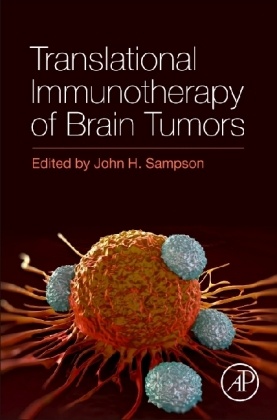Read more
Translational Immunotherapy of Brain Tumors gives researchers and practitioners an up-to-date and comprehensive overview of the field. Chapters include adoptive immunotherapy, immunosuppression, CAR therapy of brain tumors, and dendritic cell therapy for brain tumors.
Very few agents have been shown to be efficacious in the treatment of malignant gliomas. Recently, there have been a number of studies demonstrating the potential success of immunotherapy for brain tumors. Immunotherapeutics are becoming the most frequent drugs to be used in cancer therapy. These new breakthroughs, now approved by the FDA, are a part of multiple phase III international trials and ongoing research in malignant glioma, meaning that the information in this cutting-edge book will be of great importance to practitioners and researchers alike.
2018 BMA Medical Book Awards Highly Commended in Oncology
List of contents
Section I. Immunological Features of Brain Tumors
1. An Introduction to Immunotherapy in the Treatment of Brain Tumors
2. Immune Constitution of Patients With Brain Tumors
3. The Role of Regulatory T Cells and Indoleamine-2,3-dioxygenase in Brain Tumor Immunosuppression
4. The Role of Myeloid-Derived Suppressor Cells in Immunosuppression in Brain Tumors
5. Tumor-Specific Mutations in Gliomas and Their Implications for Immunotherapy
Section II. Studying Brain Tumor Immunotherapy
6. Preclinical Immunotherapeutic Animal Models for Brain Tumors
7. Imaging Studies in Immunotherapy
8. Immunotherapy Clinical Trials in Neuro-Oncology
Section III. Experimental Brain Tumor Immunotherapies
9. Peptide-Specific Vaccines
10. Immunotoxin Therapy for Brain Tumors
11. Checkpoint Blockade Immunotherapy for Glioblastoma: Progress and Challenges
12. Dendritic Cell Therapy for Brain Tumors
13. Adoptive Immunotherapy Against Brain Tumors
14. Chimeric Antigen Receptor Therapy of Brain Tumors
Report
"Despite decades of research and intense focus by some of the brightest minds in neurosurgery, real advances in the treatment of glioblastoma are elusive. As our understanding of the disease has advanced, so has the complexity of putative treatments. Immunology, let alone immune therapy, was absent from many of our senior surgeons' medical school textbooks. Yet, immunotherapy is now a main adjunct in our continued efforts to help patients suffering from both metastatic and primary cerebral nervous system neoplasms. Here, Dr. Sampson's book completes an essential task. It provides a solid immunology resource and foundation for the uninitiated and a springboard for the rising investigator. His group succinctly reviews the basic tenets of immunotherapy and goes on to elaborate the current advancements within glioblastoma." --Doody

